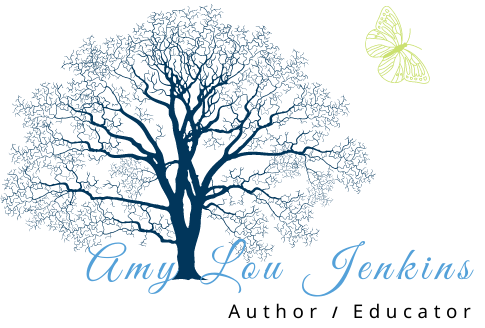
What are the Four Types of Sentence Construction?
You write sentences every day. If you haven't thought about the four types of sentence construction in a while, it's a good time to review the basic tools a writer uses to convey simple and complicated ideas.
A sentence contains a subject and a predicate and expresses a complete thought. A sentence must have at least one independent clause. An independent clause is another way to name a simple sentence. It can stand on its own.
A dependent clause can’t stand on its own, you must connect it to another independent clause. There are simple sentences (that contain one independent clause), compound sentences (which join two or more independent clauses with a comma and coordinating conjunction), complex sentences (which contain one independent clause and at least one dependent clause), and compound-complex sentences (which combine elements of compound and complex sentences).
Sentence Construction Examples
Simple sentence /independent clause
We never fail.
Compound sentence
We never fail, and we don’t mind mistakes.
Complex Sentences
We never fail because we consider mistakes to be part of the winning process.
Because we consider mistakes to be part of the winning process, we never fail.
(Notice that when a clause begins with because or other subordinating conjunctions it does not express a complete thought and is therefore a dependent clause.)
When we failed (dependent clause), we never made enough mistakes (independent clause). Complex sentence
(Notice that when the dependent clause comes before the independent clause, it is set off by a comma.)
Compound/complex sentence
When we failed, we were afraid to make mistakes, yet we should have understood the value of getting up and trying again.
(Notice that this sentence uses two independent clauses and one dependent clause. A compound-complex sentence contains at least two independent clauses and one or more dependent clauses.)
Once you understand a sentence also known as an independent clause, you begin to understand how to join clauses to make more nuanced and complicated sentences and thoughts. Sentences are the building blocks writers use to make paragraphs, and writers should understand the nature of the tools they use. When you are editing examine how you vary sentence structures for effect. Use all your tools when you build your stories, articles, and essays.
Sentence Construction Types Punctuation Rules

Knowing the punctuation patterns of the sentences will keep you from creating comma splices or run on sentences. The punctuation rules do require some grammar knowledge.
A compound sentence joins two independent clauses with a comma and coordinating conjunction (FANBOYS). Alternatively, a compound sentence joins two independent clauses with a semicolon.
The dog buried his bone, and he dug it up again.
The dog buried his bone; he dug it up again.
Notice what happens when we rewrite the sentence so it is no longer compound. Without the pronoun "he" the second half of the sentence doesn't have a subject.
The dog buried his bone and dug it up again. No comma is indicated for this sentence.
Now we have one independent clause with a longer predicate. Adding a comma when not joining two independent clauses is one of the most common comma mistakes.
Complex Sentence Punctuation
 Complex sentences have subordinating conjunctions. When a clause begins with a coordinating conjunction, it can not stand on its own.
Complex sentences have subordinating conjunctions. When a clause begins with a coordinating conjunction, it can not stand on its own.
Jefte is usually thrifty.--A simple sentence also known as an independent clause.
Although Jefte is usually thrifty, Adding the subordinate conjunction makes this a subordinate or dependent clause.
A subordinate clause must be attached to an independent clause.
Although Jeffte is usually thrifty, he buys expensive dog toys.
Jefte buys expensive dog toys although he is usually thrifty.
If the sentence begins with the subordinate clause, you set it off with a comma. No comma is needed if the subordinate or dependent clause comes after the independent clause.
Although these are basic grammar rules, many highly educated professionals are so far removed from this education that the fundamentals of sentence construction types aren't as well-known as one might imagine. Understanding the sentence construction types and the punctuation rules is fundamental to English grammar.
Can a Non-Celebrity Memoir be Sucessful? Gold book titles are affiliate links to Amazon. Or search the Indiebound store link above to find your favorite non-celeb memoir. Memoirs offer … Read more
Memoir Opening: How to Hook Your Reader from the First Page Memoir Opening: Exploring the Best Ways to Begin Your Memoir Memoirs artfully share your experiences and story with … Read more
Ten Types of Memoir /with examples Memoirs offer meaning and insight in the form of personal stories. They offer lived insight into the vulnerability, complexity, and triumphs of individuals. … Read more
The Secret Network of Nature Trees, Animals and the Extraordinary Balances of All Living Things (Stories From Science and Observation) by Peter Wohlleben, Greystone Books, 2022 (paperback), 272 pages … Read more
Nine Tips for Finding Your Memoir’s Theme Also of Interest: Find the Theme of Your Memoir (with 50 Examples.) 1. Read through journals, notes, letters, and emails. Review photos. … Read more
Find the Theme of Your Memoir (with 50 Examples) If you’ve decided to write a memoir, one of the most important decisions you’ll have to make is the theme of … Read more
Six Reasons to Read at Least Twelve Books in the New Year Read for a better new year, a better you, and perhaps a better world In the coming … Read more










